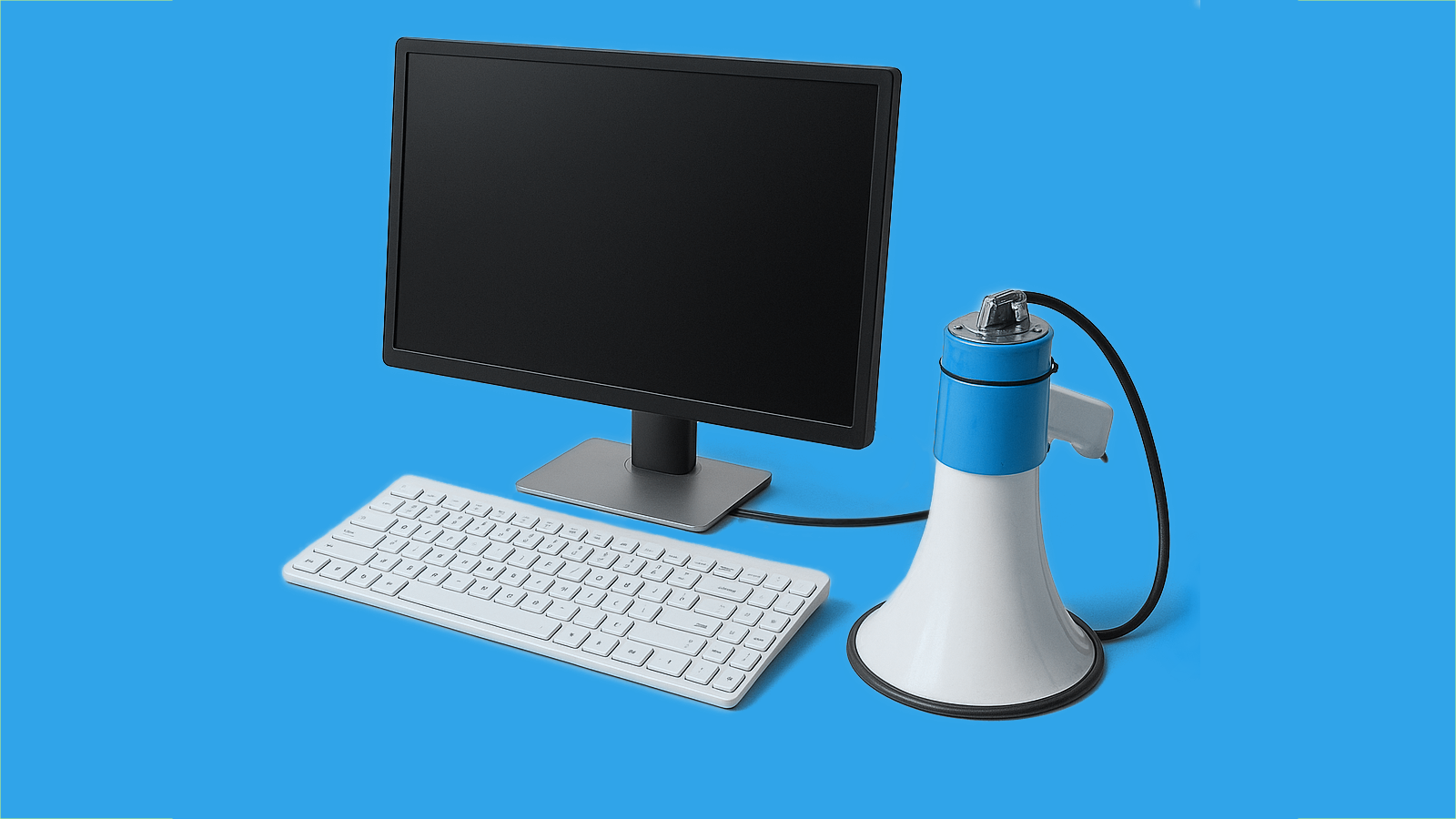Let’s face it - your business needs a website. But with so many website builders out there, finding the right one can feel like searching for a needle in a digital haystack. Don’t worry - we’ve done the hard work for you. Here’s our straightforward comparison of five top website builders that’ll help you get your business online without the tech-induced headaches.
Contents
- Squarespace: The Design-Forward Solution
- Wix: The All-Rounder with Maximum Flexibility
- Shopify: The E-commerce Powerhouse
- Canva: The Ultra-Simple Solution
- Figma Sites: The Designer’s Website Builder
- Comparison Summary: Which Platform Suits Your Needs?
- Making Your Choice: A Practical Guide
Squarespace: The Design-Forward Solution
Squarespace has earned its reputation as one of the most user-friendly website builders on the market, making it a solid choice for design-conscious UK businesses.
Ease of Use
Squarespace is consistently rated as one of the easiest website builders to use, featuring an intuitive drag-and-drop editor that makes creating your site straightforward even for complete beginners. Their recently improved AI builder, Blueprint AI, can get you up and running in minutes, generating a custom template through a guided design process.
Design Flexibility
With over 180 professionally designed templates spanning various industries, Squarespace delivers aesthetically pleasing sites right out of the box. While not as flexible as some competitors, the templates are modern, mobile-responsive, and can be customised to match your brand identity. The platform particularly shines for creative businesses looking to showcase visual work.
E-commerce Capabilities
To sell online with Squarespace, you’ll need their Business plan or one of their dedicated Commerce plans. The Commerce Basic and Advanced plans remove transaction fees entirely and offer advanced features like abandoned cart recovery and inventory management. Their Acuity Scheduling tool is excellent for service-based businesses that need appointment booking.
Strengths
- Beautiful, contemporary designs that work well across all devices
- Extremely user-friendly editing experience
- Excellent for portfolios and visual businesses
- Good value for money in the long term compared to some competitors
Weaknesses
- Less flexibility for complex, custom functionality
- Fewer templates than some competitors like Wix
- Lags behind in AI features compared to some competitors
Wix: The All-Rounder with Maximum Flexibility
Wix has established itself as a versatile platform that caters to virtually any type of business website, with options ranging from simple to sophisticated.
Ease of Use
While Wix’s interface is generally user-friendly, there can be a slight learning curve due to the sheer number of options available. However, once familiar with the platform, users find the site builder very easy to use, with beginner-friendly tools that make web creation accessible. The dashboard offers a customised website creation to-do list that guides you through the process.
Design Flexibility
Wix truly shines in this department, offering over 500 professionally designed, customisable templates. Unlike Squarespace, Wix allows access to your website’s source code through its Velo by Wix feature, enabling more advanced customisations if needed. This flexibility makes it suitable for both beginners and those with development experience. One important caveat: you cannot switch templates after your site is built.
E-commerce Capabilities
Wix Stores is a robust e-commerce platform that allows you to sell up to 50,000 products, including physical goods, digital downloads, and subscription products. You can manage orders easily, offer various shipping options including local delivery and store pickup, and even explore dropshipping through integrations with services like Modalyst and Printful. For serious selling, you’ll need one of their Business plans.
Strengths
- Unmatched design flexibility and customisation options
- Scalable hosting that handles traffic spikes well
- Comprehensive e-commerce functionality
- Excellent app marketplace to extend functionality
Weaknesses
- Can’t switch templates after site creation
- Limited storage on affordable plans
- The freedom of choice can sometimes be overwhelming for absolute beginners
Shopify: The E-commerce Powerhouse
Shopify is the undisputed king of e-commerce platforms, purpose-built for businesses that prioritise selling online.
Ease of Use
Shopify’s onboarding process can be somewhat cumbersome and confusing, with signup processes and hidden billing settings that might frustrate new users. However, once set up, the platform becomes quite intuitive for daily tasks like product management and order fulfilment. It’s designed with non-technical shop owners in mind, striking a balance between powerful features and usability.
Design Flexibility
While Shopify offers attractive templates, design isn’t its primary focus. The platform provides enough customisation options to create a professional-looking store, but if you’re after pixel-perfect design control, you may find it somewhat restrictive compared to Wix or Squarespace.
E-commerce Capabilities
This is where Shopify truly excels. The platform offers comprehensive e-commerce functionality across its three main UK pricing tiers: Basic, Shopify, and Advanced. Features include robust inventory management, multiple payment options, and varying transaction fees depending on your plan.
Strengths
- Purpose-built for online selling with comprehensive e-commerce tools
- Excellent inventory management and product organisation
- Robust security and payment processing options
- Scalable for growing businesses
Weaknesses
- Higher cost than general website builders, especially for advanced features
- Less suitable for non-commerce sites
- Can become expensive when adding premium apps and features
Canva: The Ultra-Simple Solution
Known primarily as a graphic design tool, Canva has expanded into website building with an emphasis on simplicity and visual appeal.
Ease of Use
Canva’s website builder is exceptionally easy to use, especially for those already familiar with their design platform. It leverages the same drag-and-drop interface that has made Canva popular for creating graphics, making it perhaps the most approachable option for complete beginners.
Design Flexibility
Canva offers attractive templates but with limited customisation options compared to dedicated website builders. The focus is on creating visually appealing sites quickly, rather than providing deep design control. This approach works well for temporary sites or very simple business pages.
E-commerce Capabilities
This is where Canva falls significantly short. The platform doesn’t offer native e-commerce functionality or scheduling capabilities. While you can potentially integrate third-party tools like Calendly for scheduling, Canva isn’t suitable for businesses that need to sell products or services directly from their website.
Strengths
- Extremely user-friendly for complete beginners
- Seamless integration with Canva’s design tools
- Quick setup for simple, attractive sites
- Great for businesses already using Canva for other marketing materials
Weaknesses
- No native e-commerce capabilities
- Limited functionality for contact pages and forms
- No blogging or article writing capabilities
- Poor SEO tools compared to dedicated website builders
Figma Sites: The Designer’s Website Builder
Figma Sites is a newer entrant to the website builder market, evolving from Figma’s popular design tool platform.
Ease of Use
Figma Sites leverages the familiar Figma interface, making it relatively easy to use for those already comfortable with Figma’s design tools. However, complete beginners might face a steeper learning curve compared to more established, purpose-built website builders like Squarespace or Wix.
Design Flexibility
Design flexibility is where Figma Sites potentially shines, offering granular control over visual elements. As a platform born from a professional design tool, it provides precision that might appeal to design-focused businesses or those working with professional designers.
E-commerce Capabilities
As a newer platform focused primarily on design, Figma Sites has limited native e-commerce capabilities compared to established platforms like Shopify or even Wix.
Strengths
- Strong design-centric approach
- Seamless workflow for businesses already using Figma
- Precision control over visual elements
- Potential for unique, bespoke designs
Weaknesses
- Less established than competitors with fewer resources and community support
- Limited e-commerce and business-specific functionality
- Likely requires more design knowledge than consumer-focused alternatives
- Fewer templates and pre-built components than mature platforms
Comparison Summary: Which Platform Suits Your Needs?
| Platform | Best For | Key Strength | Notable Limitation |
|---|---|---|---|
| Squarespace | Creative businesses, portfolios | Beautiful designs, ease of use | Less flexibility for complex sites |
| Wix | All-purpose business sites | Design flexibility, customisation | Can’t switch templates later |
| Shopify | Dedicated online stores | Comprehensive e-commerce tools | Expensive for non-commerce sites |
| Canva | Ultra-simple brochure sites | Extreme simplicity | No e-commerce, poor SEO |
| Figma Sites | Design-led businesses | Design precision | Less established, fewer features |
Making Your Choice: A Practical Guide
Choosing the right website builder comes down to understanding your specific business needs:
If selling products is your primary goal: Shopify is the clear winner, especially if you have numerous products or complex inventory. For just a few products, Wix or Squarespace’s business plans might be more cost-effective.
If you need a professional site quickly: Squarespace offers the best balance of speed, professional design, and functionality for most small businesses. Its templates are hard to beat for immediate professional impact.
If maximum flexibility is important: Wix provides the most room to grow and adapt your site over time, with its extensive app marketplace and customisation options.
If you’re on an extremely tight budget: Start with Canva if you just need a simple online presence. Just be aware you’ll likely outgrow it as your business develops.
If design precision matters most: Consider Figma Sites if you have design experience or work with a designer who uses Figma, but be prepared for potentially fewer business-specific features.
Remember that most platforms offer free trials or basic plans, so don’t be afraid to experiment before committing. Your website is often a customer’s first impression of your business-choose a platform that allows you to put your best foot forward without unnecessary technical headaches.
Here’s the thing - a stunning website is just half the battle. The real magic happens when you get it in front of the right audience. Ready to turn your new online presence into a customer-generating machine? That’s where Digital Gurus comes in. We make digital advertising hassle-free, running your campaigns across search and social while you focus on what you do best - running your business. No complexity, no jargon, just a simple way to get your website in front of the people who matter. Skip the marketing headaches and start seeing results.



